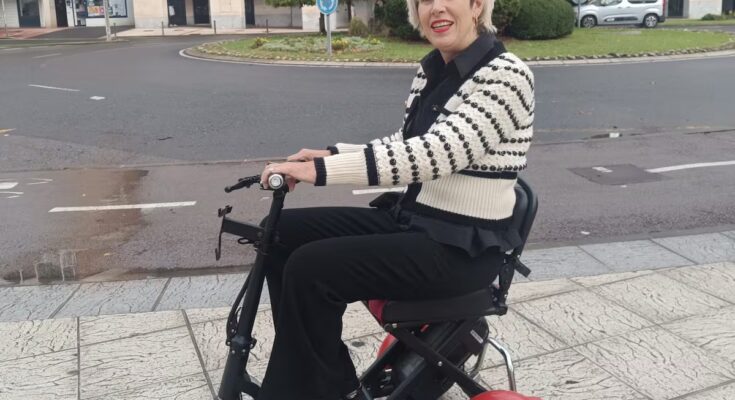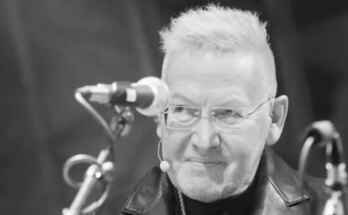Yolanda Guijas, 59 years old and suffering from multiple sclerosis which limits her mobility on foot, and her husband experienced a “very unpleasant” and “humiliating” situation in 2021 when the captain of a Vueling airline plane denied them boarding with the electric wheelchair he uses. The lead pilot called the Civil Guard to remove them from the airlift. They couldn’t fly from Seville to Bilbao with the motorbike adapted inside the ship because it had a battery and they had to rent a car to make that road trip: “It was depressing, a lack of humanity,” says Yolanda. The couple asked in court for compensation of 288 euros for the “moral damage” caused to them and financial compensation for the expenses they had to incur after being excluded from the ticket. The court of Bergara (Gipuzkoa) fully accepted this request and this month sentenced Vueling Airlines, without the possibility of appeal, to pay them 1,500 euros plus interest. “Money is the least important thing; I just want something like this to never happen to anyone else again,” says the injured person.
The events occurred in December 2021 when Yolanda and Aitor, residents of Mondragón (Gipuzkoa), went to Seville airport to fly to Bilbao after having contracted the flight with a travel agency that had previously informed the Vueling airline of the characteristics of the electric wheelchair with which the woman would board the plane. “Vueling gave us permission to fly with the motorbike scooter“, explains Yolanda. The ruling indicates that Vueling “gave the OK” to the “model data and battery type of the scooter“and allowed the couple to travel without problems. “So much so that it was not a problem,” reads the court ruling, “that on the outward flight Bilbao-Seville the motorcycle traveled without problems on the plane.”
However, on the flight home, the captain asked what type of battery was in the electric wheelchair and, after confirming that it was lithium, did not allow them to board the ship. “It was a very unpleasant moment. There were 200 passengers waiting inside and the discussion lasted three quarters of an hour. In the end, the commander refused to take us because the motorbike’s battery is lithium, and asked the Guardia Civil to evict us”, explains the injured person.
“We had asked for permission, photos of the scooter and battery characteristics. Vueling had no problems. In that tense moment I proposed to remove the battery with the key I had in the suitcase that was in the hold of the plane. Two airport maintenance workers were willing to do so, but the commander prevented it. It was depressing and inhumane,” adds Yolanda.
The couple feels very hurt by the “lack of humanity” of the person in charge of the plane, because “the solution was as simple as removing the battery and that’s it”. Yolanda and Aitor had to rent a vehicle to return from Seville to Bilbao: “During the entire journey (about 860 kilometers by road) we only stopped to refuel. We were incredibly angry. From Bilbao we took a taxi back home to Mondragón,” she explains the situation. “Can you imagine if this had happened to us in Mexico or Saudi Arabia? How would we have gotten home?” he asks angrily.
The ruling in the case, “evaluating the evidence as a whole” and “without question,” agrees with the plaintiff. The judge recalls that the applicable legislation on the matter “provides for the right to immediate compensation” when denied boarding “is carried out against the passenger’s will”, as “manifestly occurred in the present case”. It also specifies that the regulation also obliges the company “to provide alternative transport to passengers and serve them”, which means, among other things, “facilitate their return home”, without specifying that the airline “has made arrangements in this regard”.
Yolanda suffers from multiple sclerosis diagnosed 40 years ago. Before contracting this disease she worked “everything” in a canning factory, cleaning cars for the Ertzaintza, taking care of children and as an administrator. Her mobility is now reduced and she has to travel in a motorized chair, although she assures that she is “fairly independent” and can also drive an adapted automatic car, with which she travels three or four times a week from her residence in Vitoria to go to the physiotherapist.
Yolanda and Aitor were traveling in a non-motorized wheelchair and had not had any accidents until then. It was during the trip to Seville that they got on the “motorcycle” for the first time and found themselves immersed in “this episode that was so undignified for us”, he says. They recently went to Ibiza, but on that occasion, to avoid finding themselves in a similar situation, they chose to fly without the electric chair and rent it at their destination.
The head of the Bergara court sentenced Vueling to compensate Yolanda with 1,500 euros (the sum of 212 euros for the car rental, 276 euros for the mileage, 500 euros for denied boarding, 215 euros for the unused flight and 288 euros for moral damage). She claims she doesn’t care about money. “I didn’t want to receive it or make a fuss about it,” he says. “What I want is that this never happens again and that no one goes into a trance like this. I just ask for a little sensitivity with people with some kind of physical limitations,” he adds. The sentence is final and unappealable.



